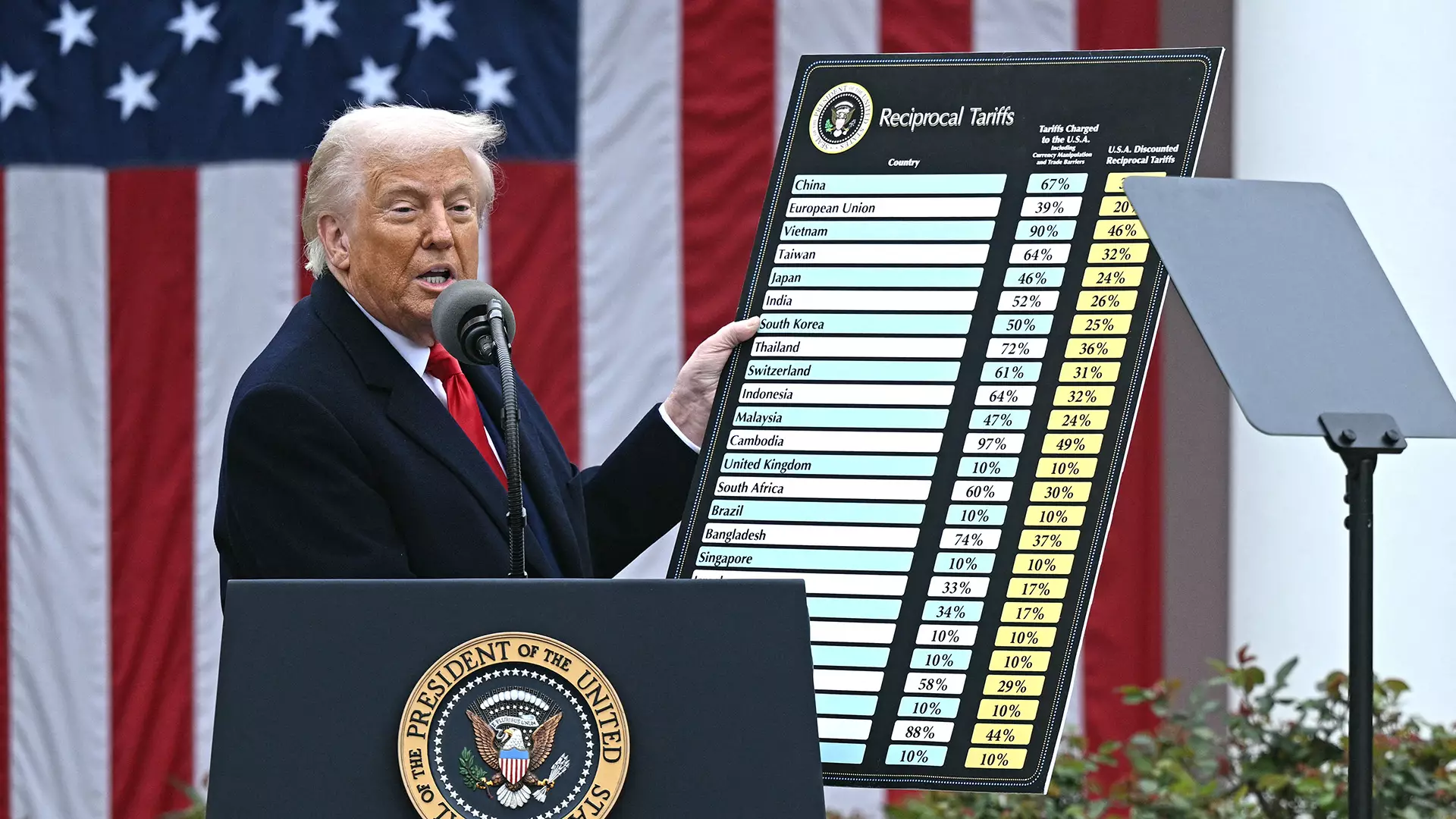Trade policies have long been a tool used by nations to defend economic interests, but in recent years, they have morphed into a battleground affecting global innovation, supply chains, and diplomatic relations. The recent wave of reciprocal tariffs, spearheaded by the United States under President Donald Trump, exemplifies how protectionist measures intended to safeguard domestic industries can inadvertently stifle technological advancement and profitability across borders. While these tariffs aim to address trade imbalances and incentivize local production, their broad application reveals a reckless disregard for the nuanced interconnectedness of today’s global economy.
By imposing high tariffs on nations like Syria, Myanmar, and Laos—some of the poorest countries—these policies risk deepening economic disparities rather than fostering equitable development. More insidiously, the targeted tariffs on high-tech sectors, such as semiconductors, threaten to destabilize an industry central to both consumer electronics and advanced military applications. The potential for significant price hikes on critical components, such as computer chips, highlights a fundamental flaw: in an interconnected world, protectionist tariffs often lead to counterproductive inflation and bottlenecks rather than the intended domestic benefits.
Economic Nationalism vs. Global Innovation
The United States’ strategy to combat perceived trade inequities by resorting to tariffs is rooted in an outdated view of international commerce. It presumes that protectionism can be a sustainable path to economic sovereignty; however, it overlooks the dynamic nature of modern manufacturing and scientific cooperation. Countries like Taiwan, a global leader in semiconductor fabrication, are caught in a geopolitical tug-of-war. Taiwanese officials have signaled that tariff reductions are tentative and subject to ongoing negotiations—a reflection of how fragile these international relationships are becoming under the weight of tariffs.
The semiconductor industry, vital to both the tech sector and national security, exemplifies how tariffs can create unintended consequences. Companies such as TSMC and Samsung are investing billions in U.S. manufacturing plants, yet the capacity of these facilities to meet global demand remains limited. As a result, American consumers and industries face increased costs, particularly in PC gaming hardware and advanced electronics. These tariffs thus act as a double-edged sword: while they aim to protect domestic jobs, they jeopardize the very innovation pipelines that propel technological progress.
The Unintended Ripple Effects and Long-term Risks
The broader implications of blanket tariffs extend beyond immediate economic metrics to the foundational structure of global innovation ecosystems. When tariffs discourage international collaboration, they hinder the cross-pollination of ideas, research, and best practices that fuel technological breakthroughs. The gaming industry, for instance, is a clear bellwether—shipping delays, increased costs, and procurement uncertainties ripple through to consumers, disrupting the vibrant culture of hardware development and software excellence.
Furthermore, the unpredictability of tariff policies creates a precarious landscape for investors and manufacturers. Companies are forced into reactive modes—pausing shipments, shifting production sources, and reconfiguring supply chains—all of which increase operational costs and reduce financial stability. In the long run, such instability diminishes the world’s capacity to tackle pressing issues such as climate change, health crises, and space exploration—areas where international cooperation is not just beneficial but essential.
Finally, these aggressive tariff tactics risk fostering a global atmosphere of suspicion and fragmentation, undermining decades of diplomatic progress. As countries respond with retaliatory measures, a perilous cycle of economic escalation threatens to devolve into protectionist isolationism, ultimately hampering the collective pursuit of innovation, prosperity, and shared progress. Instead of building walls, nations should invest in fair institutions and open collaborations—forces far more powerful at advancing human potential than tariffs ever could.

